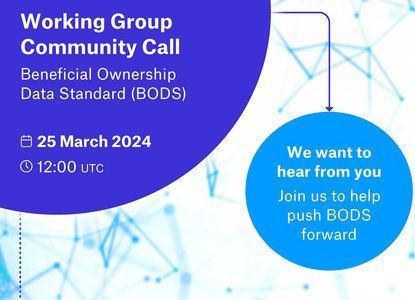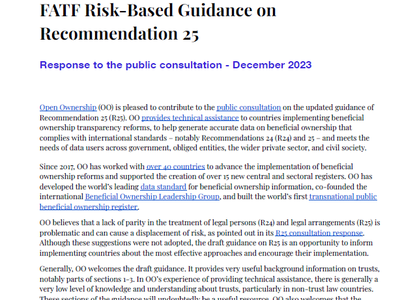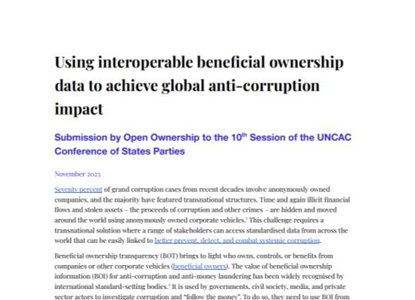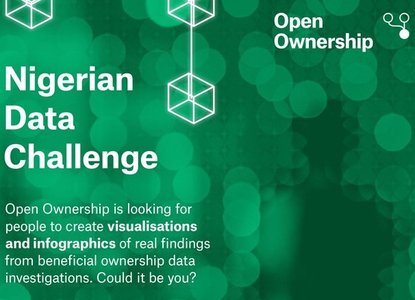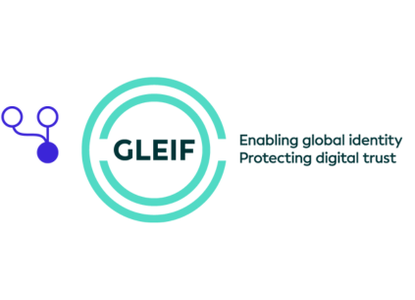Updated January 2023
Beneficial ownership information should be collected, stored, and shared as structured and interoperable data
- Beneficial ownership data should be collected, stored, and shared as structured data in a way that can be used to identify all parties and describe the full range of relationships that can exist in a beneficial ownership declaration, using clear identifiers.
- Data should conform to a specified data template and format, with an appropriate licence and sufficient documentation, including a publication policy.
- Sufficient information should be captured to create an auditable record, including dates and reasons for specific changes.
- Data should be available digitally, including in machine-readable formats.
- Data should be auditable by users by making it available in a range of ways, including in a browsable format, a bulk format, on a per-record basis, and via an application programming interface (API).
Structured data is data that is highly organised according to a predefined model. Collecting, storing, and making beneficial ownership information available as structured and interoperable data improves its functionality. It reduces the cost of producing, using, and maintaining the information, and has a greater chance of meeting beneficial ownership transparency policy goals. For example, it enables new types of analysis for both technical and non-technical users by allowing websites, apps, and other tools to readily process the data.
Structured data can be more easily analysed and linked with other datasets. Using clear identifiers (e.g. the Legal Entity Identifier or LEI, for legal entities and arrangements, and taxpayer numbers for people) makes it easier to match declarations about the same people or corporate vehicles and distinguish between those with similar details. Linking data can give visibility of transnational ownership structures, and it can enable beneficial ownership data to be automatically used in procurement or licensing processes. When beneficial ownership data is structured and interoperable, it is also easier to verify, as a greater range of automated and manual verification mechanisms can be used.
The Beneficial Ownership Data Standard (BODS) is a template for publishing structured data about beneficial ownership in a format (JavaScript Object Notation or JSON) that can be read and understood by computer systems around the world. An appropriate licence for the data and sufficient accompanying documentation in the form of a publication policy can enable data use and help resolve any uncertainties over the published data.
Sufficient information should be captured to make beneficial ownership records auditable, meaning it is easy to access, interpret and check. Clear dates and reasons for updates should be included as part of the record. These include updates due to real-world changes, such as a change of beneficial owner or annual reporting requirements, and corrections to the historical record that are made by the registrar. In cases where information was previously published but subsequently exempted from publication under a protection regime, relevant records should be redacted.
Ensuring the data is auditable, by making it available in a range of formats, allows it to reach its full potential. For example, when data is machine readable and available in bulk, multiple declarations can be analysed together. This allows users, such as financial intelligence units (FIUs), procurement agencies, banks, and journalists, to apply data science and machine learning techniques to identify suspicious patterns of ownership, for example, or beneficial owners that appear on other datasets of interest (for example, sanctions lists). Making the data available through other modes, such as an API, can enable further data use and reuse.

